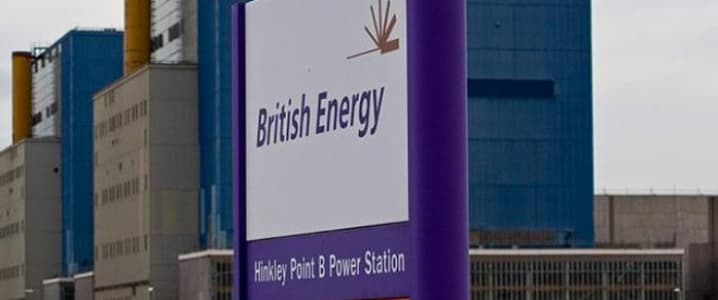Late last week UK Prime Minister, Theresa May, told France’s Hollande that she wanted more time to review the Hinkley Point nuclear project. The Board of EDF, the project’s builder, had just given the go-ahead to this controversial nuclear new build, with the directors split on the advisability of the project. This reluctant approval, already delayed, was to have been the last hurdle prior to the start of construction. We imagine that the French and their Chinese partners were somewhat taken aback.
From our perspective, across the pond, there seem to be at least two compelling reasons for the Conservative’s to ask for more time here. The first is economic and the second pertains to matters of national security.
The economic argument against Hinkley Point is rather straightforward. It’s too expensive, despite a supposedly benign carbon footprint, and the price guarantees for the power produced by the plant are too generous.
The national security concerns are a tad more obscure. As a French and Chinese joint venture, this could provide Chinese authorities with an opportunity to influence a significant domestic energy resource for decades to come, especially under present agreements. Even more, approval would signal the Chinese that the new government was as eager as the old one to talk about Chinese involvement in a series of nuclear projects. Perhaps, though, assuming favorable relations between Britain, France and China for the sixty year planned operating life of the plant is a bit much to hope for, or expect.
Our guess is that it’s the seemingly exorbitant power price subsidies that are knitting more than a few brows at Number 10 Downing. One possible solution to this is fairly straightforward. First, abandon the previous subsidy scheme with its escalating price guarantees. The point of this ungainly economic mechanism is to induce other nations to invest in UK utility infrastructure. Second, have the UK government itself finance the entire project, inevitable cost overruns and all. (Sovereign interest rates are at all-time lows, so it’s a good time to sell long-term government bonds.) Third, negotiate a long-term payment scheme with the French for vendor services as the new plant’s operator. Related: Oil Correction Stalls On Strong Dollar, Rising Rig Count
This plan could solve a number of the sensitive political or national security issues. With British funding, EDF’s need for a partner, Chinese or otherwise, fades away. However the Chinese are likely to soon push their own reactor design in the UK. Perhaps then we’ll learn more about the government’s sensitivities towards nuclear power and national security. We suspect that the new government may not take as easy going a view of Chinese investment as the previous one.
The technology involved is EDF’s EPR type reactor. The issues, delays and controversies associated with this design have been well reported. The simple fact that this design, at the current cost estimates, is even under consideration tells us a lot about the government’s desire to add nuclear energy to its electric generation fleet. Everyone knows that gas-fired power plants are much cheaper to build.
Looking at it from a finance perspective, the UK government, in choosing to support Hinkley, is stating a clear preference. It is willing to tolerate high capital costs so long as these are accompanied by reasonably secure, low fuel costs. Natural gas plants come with far lower capital costs but long-term uncertainty with respect to volatility of fuel cost. Is this the correct choice? We doubt it but we don’t get a vote.
It’s possible a new UK government is trying to redefine its relationship with a global nuclear industry. More likely it is trying to redefine its relationship with France and China. But if the May government still wants Hinkley Point, it should finance the plant itself with low cost debt. The present compensation scheme seems to offer skewed rewards.
By Leonard Hyman and Williams Tilles
ADVERTISEMENT
More Top Reads From Oilprice.com:
- Six Weeks In A Row – Rising Rig Count Pushes Oil Down
- Despite Low Oil Prices, Saudi Arabia Stabilizing Economy
- Bankrupt Peabody Energy Seeks Approval To Pay $12M in Bonuses


















